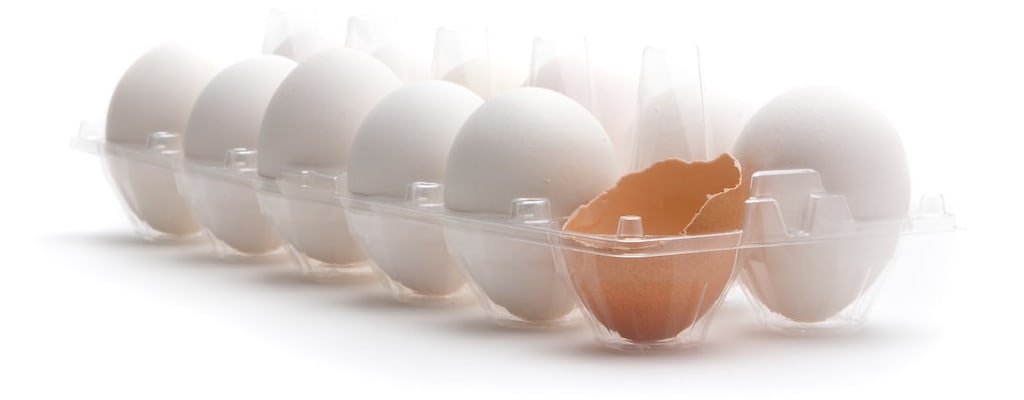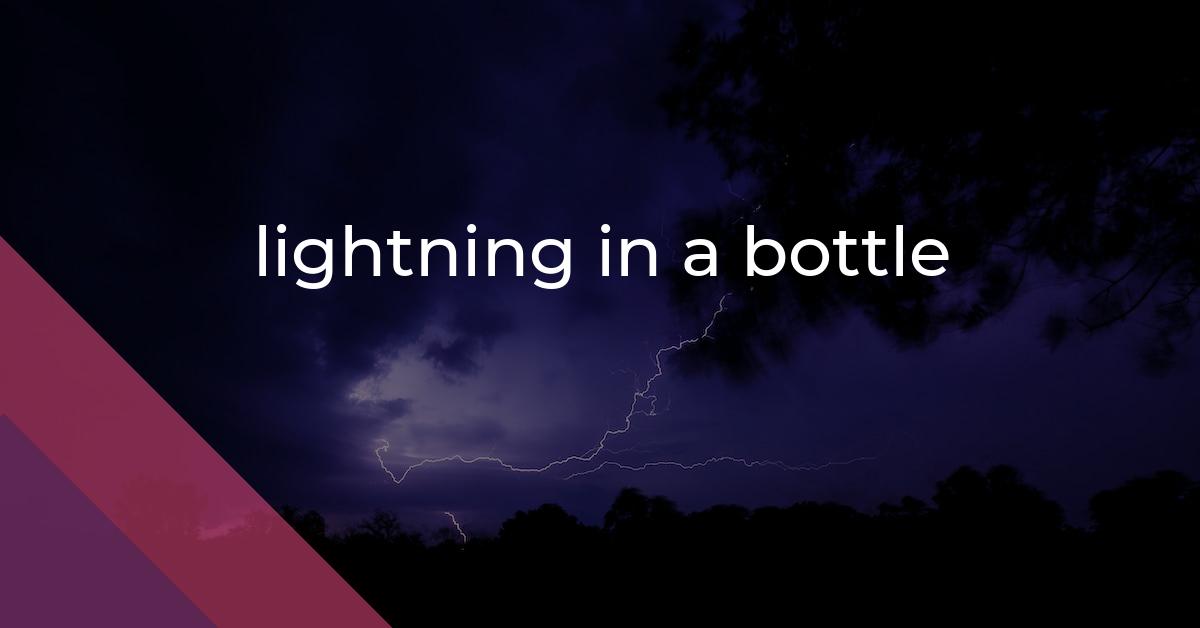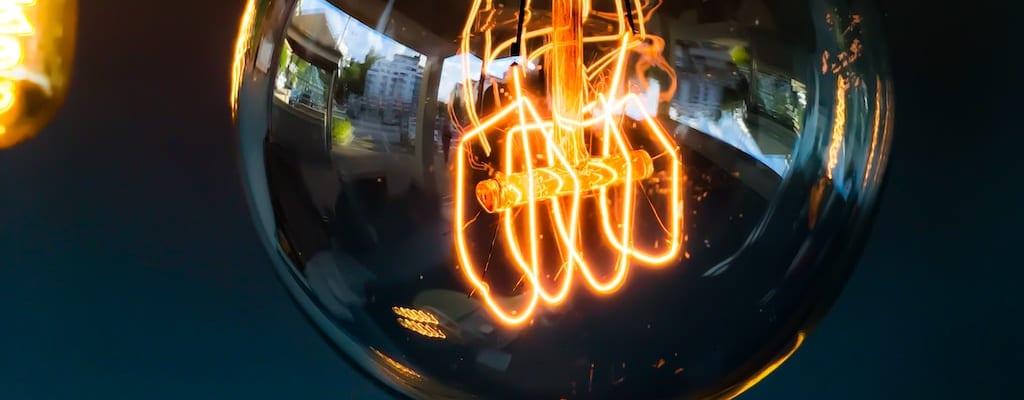lightning in a bottle: Idiom Meaning and Origin
What does ‘lightning in a bottle’ mean?
The idiom "lightning in a bottle" refers to something that is very rare, hard to obtain, or difficult to reproduce. It describes a fleeting moment of success or brilliance that is nearly impossible to replicate.

Idiom Explorer
The idiom "ray of light" refers to a small sign of hope or positivity in a difficult or dark situation. It symbolizes optimism and the belief that things will improve, even in challenging times.
An idiom used to describe someone or something that is highly unusual or unique; as rare as a rare animal.
The idiom "rain buckets" means to rain heavily or pour down. It can be used both literally, describing heavy rainfall, and figuratively, to describe a situation with a large amount of something.
The idiom "quick-fire" means to do or say something very quickly without much hesitation or delay.
The idiom "one-off" refers to something that happens or is done only once, and is not repeated or meant to be continuous.
The idiom "one-hit wonder" refers to a person or thing that experiences a brief period of success or fame, particularly in the music industry, but is unable to repeat or sustain that success in the long term.
A 'no-hit wonder' is an idiom used to describe someone or something that achieves success or recognition only once, often in a dramatic or impressive way, but fails to replicate that success again in the future.
The idiom "new wine in an old bottle" means presenting something new or different in a familiar or old-fashioned way.
The idiom "moment in the sun" means a brief period of fame, success, or recognition, often followed by a decline or being overshadowed by others.
The idiom "minor miracle" refers to a small and unexpected event that is considered highly unlikely or improbable. It emphasizes the surprising nature of the outcome, but also implies that it is not a significant or major accomplishment or occurrence.
Unleashing Power Within
Lightning in a bottle is an idiom that refers to the idea of capturing something rare, elusive, or fleeting. It often describes an extraordinary and unpredictable event that is difficult to replicate or control. The phrase is commonly used to illustrate moments, experiences, or opportunities that are unique and exceptional. It's like trying to catch lightning in a bottle – a near-impossible task.
The origin of this idiom can be traced back to the ancient belief that capturing lightning in a bottle was a magical and impossible feat. People believed that bottled lightning contained immense power and could be used for various purposes. However, given the fleeting nature of lightning, the notion of capturing it in a bottle was merely a metaphor for capturing something remarkable but highly transitory.
The idiom 'lightning in a bottle' gained popularity in the late 19th and early 20th century, particularly in American literature. Writers often used it to convey the concept of trying to capture or preserve a fleeting moment of inspiration, creativity, or success. Just like trying to capture lightning in a bottle, these moments were rare, elusive, and could pass by in the blink of an eye.
In the entertainment industry, the idiom is frequently used to describe a talented individual or a breakthrough performance that is difficult to replicate. It's like witnessing lightning-fast speed – something that happens incredibly quickly and leaves a lasting impact. These exceptional talents or performances can be considered as 'lightning in a bottle' because they are unique, awe-inspiring, and often provide a rare glimpse of brilliance.
Businesses and marketers also use the idiom to describe a successful and impactful product or campaign that is challenging to recreate or reproduce. Just like capturing lightning in a bottle, these successful endeavors are lightning-quick – they happen swiftly, outshining competitors, and leaving a lasting impression on consumers. They represent a brilliant moment, like a flash of lightning, that can't easily be duplicated.
The widespread usage of the phrase 'lightning in a bottle' in everyday speech reflects its familiarity and acceptance in the English language. People understand that exceptional and extraordinary occurrences are often fleeting and difficult to capture or recreate. They know that such moments, experiences, or opportunities are like trying to catch lightning in a bottle. They come and go in a flash, leaving us in awe of their brilliance and making us crave more.
To truly appreciate the idiom 'lightning in a bottle,' we must understand its origins and how it has evolved over time. The ancient belief in capturing lightning in a bottle sparked the metaphorical concept of capturing something extraordinary but fleeting. This metaphor found its way into literature, entertainment, and business, where it describes unique and exceptional events, experiences, and opportunities.
Similar to how we can't truly catch lightning in a bottle, these exceptional occurrences are challenging to replicate or control. They happen lightning-fast, in the blink of an eye, leaving us in awe of their brilliance. Just like witnessing a flash of lightning, they leave a lasting impact on us, making us yearn for more.
The idiom 'lightning in a bottle' has become ingrained in the English language. It is a well-known and frequently employed phrase used to convey the idea that exceptional and extraordinary moments are often rare, elusive, and difficult to capture or recreate. So next time you witness something truly remarkable, remember that it's like trying to capture lightning in a bottle – an awe-inspiring moment that can't easily be duplicated.
Example usage
Examples of how the idiom lightning in a bottle can be used in a sentence:
- When the young entrepreneur's innovative idea finally took off, it was like catching lightning in a bottle.
- The chemistry between the two lead actors was so electric that their on-screen performance felt like lightning in a bottle.
- She managed to capture the essence of a perfect summer day in her painting, as if she had bottled lightning in a bottle.
More "Metaphor" idioms



